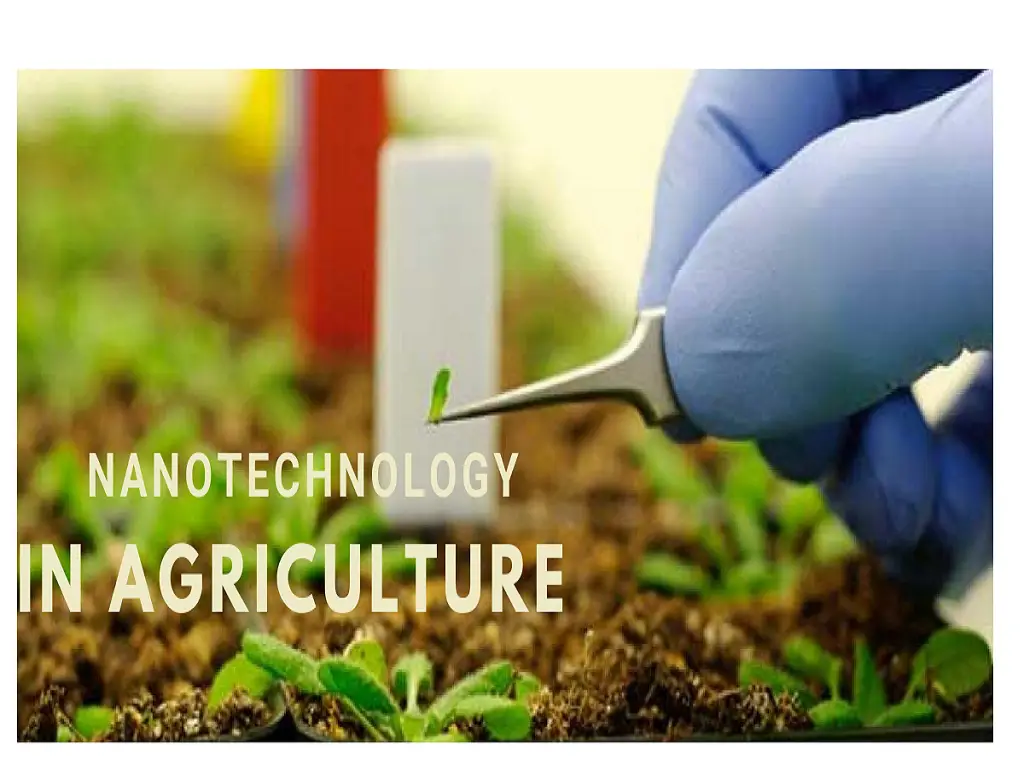In this present time, farming involves the usage of a lot of chemicals.
This starts from the usage of fertilizers for crop cultivation to the pesticides in the food products which are used to increase the shelf life.
Nanotechnology in Pollution Control
The application of nanotechnology in agriculture, it will help in developing a nurturing environment where the optimal decisions are taken on a timely basis.
For example, it will enhance the abilities of the crops to absorb nutrients from the soil, help in detecting and controlling diseases that affect the crops.
Nanotechnology in farming will also help in managing resources as tools are more efficiently used, environmental pressures originating from the generation of pollution as it provides alternative energy sources which is not just cost-effective but ecosystem friendly.
Nanotechnology can be used in every step of agriculture, which will improvise the entire process.
With the presence of nanoparticles in agriculture, it will act beneficial to the crops.
The introduction of nanotechnology and nanoparticles in agriculture has opened up a lot of applications and potential uses with this technology.
Since the nanoparticles are really small in size they will not impact the quality of the food.
It will help in the timely delivery of the pesticides or the fertilizers (for example, the silica nanoparticles) at the said time and in the given space, with the support of nanorobots.
With the help of nanoparticles, a certain area of the plant can be targeted to release these chemicals which will reduce any damage to the crops and the environment.
Nanotechnology in Plant Pathology
The application of fertilizers on plants is done with the help of either spray or by drenching.
The antibiotics, as well as nutrients, are supplied to the plants and the soil through this method.
In the case of animals, either injection are used or it is given through the feed.
Usually, pesticides are given to prevent the crops from getting damaged or to even save a crop that is under some kind of a pest attack.
For developing these preventive antibiotics and to develop pesticides, nanotechnology can be used.
Nanotechnology can also be used in plant disease diagnosis and management since it’ll be detected at an early stage.
This particular role of nanotechnology in plant pathology can not be underestimated and it holds a bright future for the use of nanotech in farming since it would make a big difference in cost management, human and material resources management.
In the USA for example, nanotechnology is already being used to significantly improve crop cultivation and increase the quality of food production.
Any kind of infection in the crops can be detected earlier and the proper measures can be taken for that.
Other issues like the lack of nutrients and the deterioration in crop health can be checked earlier before any kind of permanent damage is done to the crops.
This specific method can be applied to the region where a particular infection has happened.
Since pest control products might cause harm to crops, nanotechnology is the alternative technology being used now.
Nanotechnology helps in improving the Quality of Farm Produce
The majority of agricultural products like fruits and vegetables, dairy products, and meat will fall under the category of perishable goods.
With the right implementation of nanotechnology, the shelf life of these goods can be increased and the quality, as well as the freshness of these goods, can be maintained.
Applications of Nanotechnology in Agriculture
To detect the diseases occurring in plants, technologies like nanoparticles and nanocapsules are used.
Apart from this, it is also used for nutrition application to plants and to release the essential ingredients in the right areas of plants.
By combining all the possible uses of nanotechnology in the field of agriculture, several issues can be resolved and the entire cost of production can be reduced.
The yield of the crops can also be increased significantly.
The implication of the biopolymers which are obtained from the nanoparticles is also proven to reduce the negative impact on human health.
When looking into the improvement in the production and in increasing the shelf life of the food products, this technology can be used to match with the increase in demand.
This can be obtained by increasing the efficiency, by exploring the useful components in plants.
The right application of the chemicals with the help of nanoparticles will also save the environment from getting polluted.

Growing up in a family deeply rooted in agriculture, I developed an early passion for cultivating the land, caring for animals, and exploring sustainable ways to improve farm productivity.
I’ve worked extensively across multiple areas of agriculture, food and cash crop cultivation, poultry farming, fish farming etc.
At FarmPally, I enjoy sharing practical insights drawn from real-life experiences to help farmers, pet owners, and agriculture lovers make informed, and sustainable decisions.

